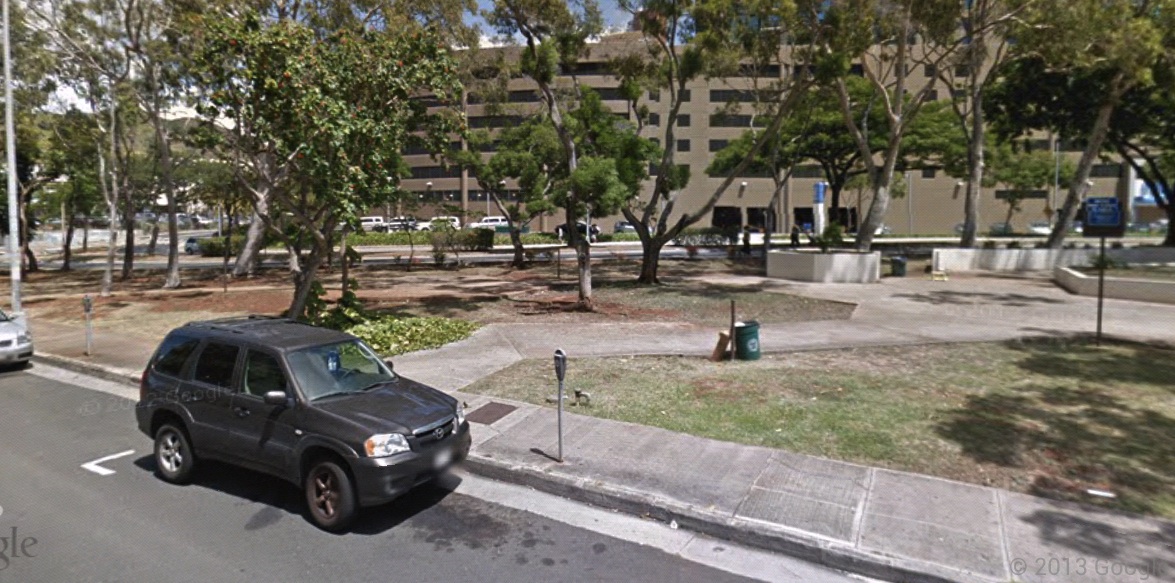

The site of the Fort Street Chinese Church used between 1881-1928, was located in the area now occupied by the triangular park behind the Central Fire Station between Fort Street and the southern end of the Pali Highway. The front of the church sanctuary was on the west side on Fort Street.
On August 7, 1879, the congregation purchased at an auction this lot for the sum of $4500.
On January 2, 1881, The church building, constructed at a cost of $6,500 with an additional $1,000 for furnishings, was formally dedicated as the Fort Street Chinese Church also known as the FO GAI FOOK YIM TONG and served as the focal point of all Chinese mission work in the islands. The first story was a combination parish hall and Sunday School classrooms, while the second floor built as a sanctuary, was where regular worship services were held.
The church building was constantly in use not only for regular services and Bible classes, but also for funerals, weddings, wedding receptions, and other social functions. Here, hundreds of children as well as many of their parents and other adults in the community were taught both English and Chinese either in the day or evening classes.
1892, June 10: Hawaii’s first kindergarten/preschool is organized in a new cottage on the Fort Street Chinese Church premises as a classroom, Mildred Kinney with the assistance of Hattie Chang, a church member, gathered together 11 tiny tots, children of members of the church and residents of Chaplain Lane. The only equipment they had at first consisted of a “handful of wiliwili seeds and some bits of chalk.” Miss Kinney recalls that her pupils included several “whose bound feet required their fathers to carry them to and from the school.”
On November 8, 1922, the Princess Theatre opened across the street seating 1,600. A survey of the church members showed that a hundred fifty members had moved out of Chinatown after the Chinatown fire to the Makiki district and only 40 still lived in Chinatown. That and the fact that the theatre next door was becoming distracting to those at the church next door led to the decision to purchase land and make the move to Makiki.
